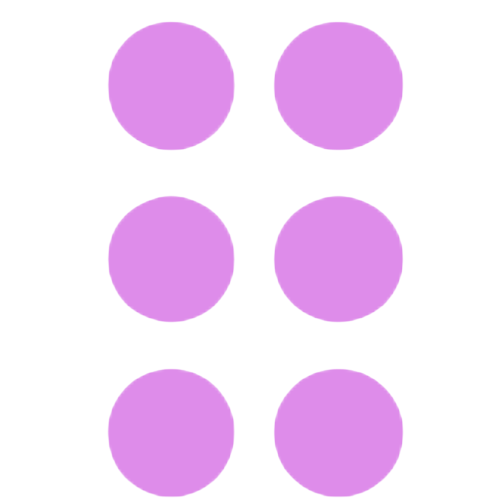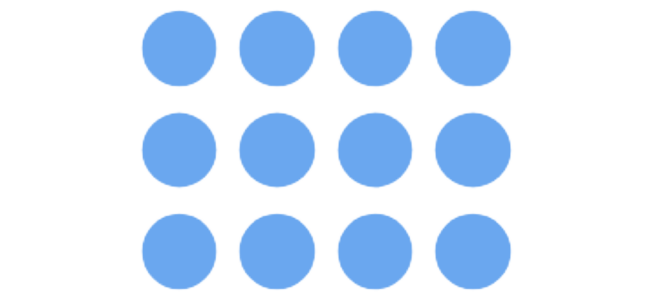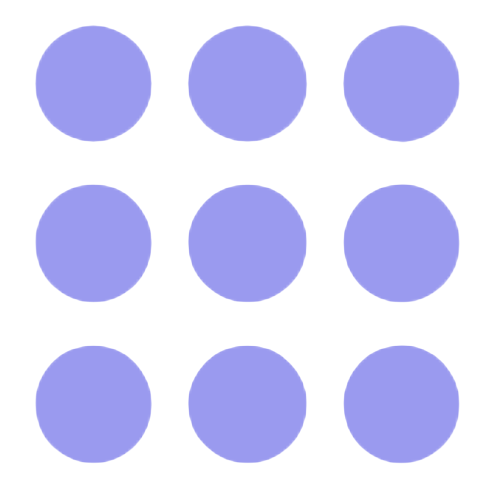Multiplication tables for 2, 3, 4, 5, 10
Key Notes :
🎯 What is Multiplication?
Multiplication means repeated addition ➕➕
- Example: 3 × 4 = 12 means 4 + 4 + 4 = 12
It helps us count equal groups faster ⏱️
🔢 Table of 2 (Skip count by 2s)
🧡 Counting pattern: 2, 4, 6, 8, 10, 12, 14, 16, 18, 20
📌 Every answer is even
📘 Example:
- 2 × 4 = 8
- 2 × 7 = 14
💙 Table of 3 (Skip count by 3s)
💡 Counting pattern: 3, 6, 9, 12, 15, 18, 21, 24, 27, 30
⭐ A little trick:
- The digits repeat a pattern (3, 6, 9 → 12, 15, 18 → 21, 24, 27 🌀)
📘 Example:
- 3 × 5 = 15
- 3 × 8 = 24
💚 Table of 4 (Skip count by 4s)
Counting pattern: 4, 8, 12, 16, 20, 24, 28, 32, 36, 40
🎯 Trick: 4 = 2 + 2
- So 4 × n = double of (2 × n)
📘 Example:
- 4 × 3 = 12
- 4 × 6 = 24
💛 Table of 5 (Skip count by 5s)
Counting pattern: 5, 10, 15, 20, 25, 30, 35, 40, 45, 50
⭐ Trick:
- All answers end in 0 or 5 🎉
📘 Example:
- 5 × 4 = 20
- 5 × 7 = 35
💜 Table of 10 (Skip count by 10s)
Counting pattern: 10, 20, 30, 40, 50, 60, 70, 80, 90, 100
🌟 Trick:
- Just add 0 to the number!
- Example: 10 × 6 = 60
📘 Example:
- 10 × 3 = 30
- 10 × 9 = 90
🎉 Easy Memory Tips
- 👀 Look for patterns in answers
- 🔄 Practice skip counting (2s, 3s, 4s, 5s, 10s)
- 🗣️ Say the tables aloud daily
- 🎮 Use games, claps, jumps to make it fun!
Multiply by 2

💡 Twice a number to get a multiple of 2
👇 Multiplication table of 2
- 2 × 0 =0
- 2 × 1 =2
- 2 × 2 =4
- 2 × 3 =6
- 2 × 4 =8
- 2 × 5 =10
- 2 × 6 =12
- 2 × 7 =14
- 2 × 8 =16
- 2 × 9 =18
- 2 × 10 =20
- 2 × 11 =22
- 2 × 12 =24
Multiply by 3

Multiplication is adding the same number repeatedly.
To multiply by 3, you add a number to itself 3 times.
What’s 2 × 3?
You can draw equal groups to help figure it out.

2 × 3 is a shortcut for writing:
2 + 2 + 2 = 6
Tip: Do skip-counting in your head to figure it out:
2, 4, 6
The Multiplication Table of 3
- 3×1 =3
- 3×2 =6
- 3×3 =9
- 3×4 =12
- 3×5 =15
- 3×6 =18
- 3×7 =21
- 3×8 =24
- 3×9 =27
- 3×10 =30
Multiply by 4

Multiplication is repeated addition.
How to Multiply by 4
When you multiply a number by 4, it’s like adding equal groups four times.
For example:
4 x 4 = ?
4 × 4 is a shortcut for writing:
4 + 4 + 4 + 4 = ?
Let’s draw 4 groups, with 4 stars in each group.

If we count the stars altogether, we’ll have 16 stars.
So we see that 4 x 4 is 16!
Secret Trick: Skip count!
Do you know what 8 x 4 is?
If you don’t, just skip count by one of the numbers to find out. Then memorize it!
We can skip count by either factor. Let’s skip count by 8, four times:
8, 16, 24, 32
So 8 x 4 = 32!
You can use skip counting to solve any multiplication problem you don’t know, but then it’s important to memorize the answers.
Multiplication table of 4
- 4×1= 4
- 4×2= 8
- 4×3= 12
- 4×4= 16
- 4×5= 20
- 4×6= 24
- 4×7= 28
- 4×8= 32
- 4×9= 36
- 4×10= 40
- 4×11= 44
- 4×12= 48
Multiply by 5

Multiplying by 5 is like skip counting by the other factor 5 times!
Ex: 2 x 5 =?
2 + 2 + 2 + 2 + 2 = 10
Multiplication Table of 5
- 5×1= 5
- 5×2= 10
- 5×3= 15
- 5×4= 20
- 5×5= 25
- 5×6= 30
- 5×7= 35
- 5×8= 40
- 5×9= 45
- 5×10= 50
Multiply by 10
Any time we multiply a whole number by 10 we’re gonna keep the original number and simply add a zero to the end.
1 × 10 = 10
2 × 10 = 20
3 × 10 = 30
4 × 10 = 40
5 × 10 = 50

multiplication table of 10
- 1 × 10 = 10
- 2 × 10 = 20
- 3 × 10 = 30
- 4 × 10 = 40
- 5 × 10 = 50
- 6 × 10 = 60
- 7 × 10 = 70
- 8 × 10 = 80
- 9 × 10 = 90
- 10 × 10 = 100
- 11 × 10 = 110
- 12 × 10 = 120
💡 Multiplying a number by 10 is the same as adding a number to itself 10 times.
3 x 10 = ?
To figure out the answer, we can do repeated addition:
3 + 3 + 3 + 3 + 3 + 3 + 3 + 3 + 3 + 3 =30 😅
Learn with an example
Multiply.
3 x 2 =
This array shows that 3 × 2 = 6. It has 3 rows with 2 dots in each row.

There are 6 dots in all.
3 x 2 = 6
This number line also shows that 3 × 2 = 6. Count by 2s on the number line. Count forward 3 times.

The last arrow ends at 6.
3 x 2 = 6
Multiply.
3 x 4 =
This array shows that 3 × 4 = 12. It has 3 rows with 4 dots in each row.

There are 12 dots in all.
3 x 4 = 12
This number line also shows that 3 × 4 = 12. Count by 4s on the number line. Count forward 3 times.

The last arrow ends at 12.
3 x 4 = 12
Multiply.
3 × 3 =
This array shows that 3 × 3 = 9. It has 3 rows with 3 dots in each row.

There are 9 dots in all.
3 × 3 = 9
This number line also shows that 3 × 3 = 9. Count by 3s on the number line. Count forward 3 times.

The last arrow ends at 9.
3 × 3 = 9
Let’s practice!

